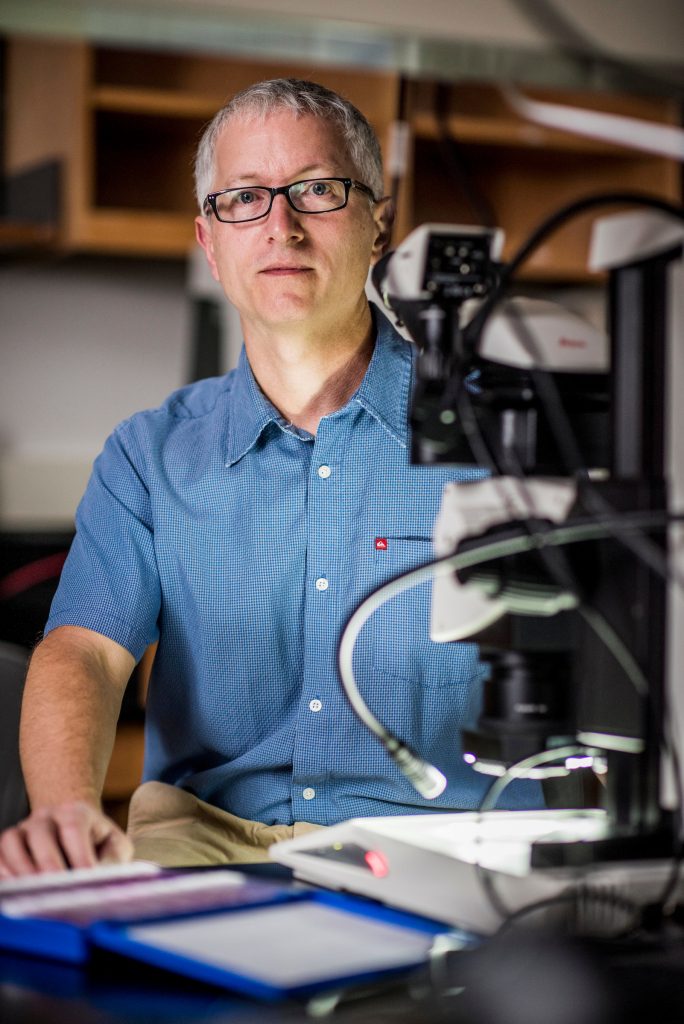Every day, people are confronted with science: through medications, by coping with storms, by having a safe and plentiful food supply, through breathing clean air and in their access to clean water and safe sanitation.
Yet those topics are seldom framed in terms of the decades of scientific research and expertise that led to the development of antibiotics, climate modeling, modern agriculture, clean energy and water filtration. A study of history allows people to learn from past mistakes and successes and to build upon accumulated knowledge.
Frank von Hippel, a professor of biological sciences at Northern Arizona University who works in the Center for Bioengineering Innovation, has always been interested in the history of science and for years has toyed with the idea of expanding his writing into a science history podcast. He started that podcast in December as a way to combat the decreasing science literacy in the United States and abroad.
“Pretty much everything we do in our lives has a scientific basis,” von Hippel said. “It’s hard for people to make informed decisions about critical aspects of their lives if they don’t have the fluency to understand the science. This is one way I can help people understand the value of science.”
He studies ecotoxicology and how pollutants affect both the environment and human health, but his scientific interests are varied and his historical forays cover a wide array of topics. His first podcast episode looked at the history of the research that uncovered the basis of how many chemicals, such as pesticides and PCBs, are toxic. His second episode featured an 89-year-old physicist from Brazil and von Hippel’s physicist uncle, with whom he shares a name, discussing nuclear disarmament and alternative energy. Episode three examines the history of congressional attacks on science and their repercussions on society.
His second book on science history, which is almost done, examines the development of chemicals since the mid-19th century to fight famine, stop plagues and wage war.
“A lot of chemical weapons were originally pesticides that were then converted into chemical weapons, and a lot of pesticides were originally chemical weapons that were then designed to be pesticides,” von Hippel said. “There’s all this interesting history in terms of fighting infectious diseases, famine and warfare that plays into the development of chemicals.”
The podcast is gaining momentum, with downloads throughout the world. Professors have emailed him after sharing it with their classes, and leaders of non-governmental organizations have reached out to say they listened to it in staff meetings and discussed how it affects the issues they work with every day. The audience so far is mostly scientists, von Hippel said, but it’s not intended solely for scientists. Rather, his audience is people who are interested in science and history.
He’s hopeful that presenting these topics will be educational, interesting and help people consider their ideas about science and the importance of making informed decisions.
The Science History Podcast is available online or through the search function of any podcasting app.



